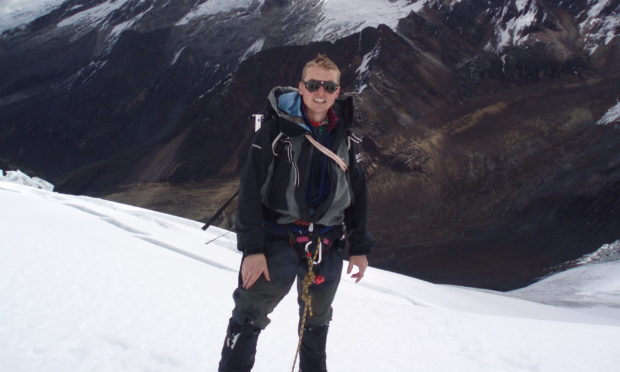The chief executive of the Perth-based Royal Scottish Geographical Society has warned that the impact of the coronavirus outbreak on every day life should act as a wake-up call for urgent systemic global action to combat climate change.
Mike Robinson said that while he was confident the world would recover relatively quickly from the profound economic and health shock caused by coronavirus, the same could not be said about the forecasted impact of climate change over coming decades that is “not going to be short term and will be extremely profound”.
Mr Robinson told The Courier: “Scientifically and medically, people have been waiting for a pandemic like this for years.
“We knew that some pandemic was coming – but nobody knew what it would be and when it would hit.
“Because of that quite a lot of the systems are in place to help support that and try to mitigate the impact of that.
“Of course there are lots of opinions about how well we have done that or how poorly we’ve done that. While it will be awful for some people, in a few years’ time after a vaccine has hopefully been developed, we’ll look back and consider how temporary and unusual these times were.
“But I guess what I am concerned with is some of the other issues science has been telling us are around the corner.
“One of the most obvious is climate change, and climate change if and when it really bites is not going to be short term and it is extremely profound.”
Mr Robinson said he hoped one of the positives that would come from the coronavirus outbreak in the longer term is a greater realisation by people of what matters in life and what many often take for granted.
Mr Robinson said that for him, the NHS had to be at the top of his “most valued” list.
He worries it’s been cut “quite significantly” over the last 10 years and it’s now about to be tested to “breaking point”.
“Maybe this will encourage people to work from home more wherever appropriate, travel less and consume less and value things better,” he added.
“I know it sounds silly but things like social interaction and going to the theatre or cinema and being able to buy food – and quite rightly so because we’ve got a developed society.
“But I think it’s just going to remind people that these are great things, they are privileges.
“I hope there is a little bit of a sense that comes from all this about the good things that we have around us and we should value more.”










